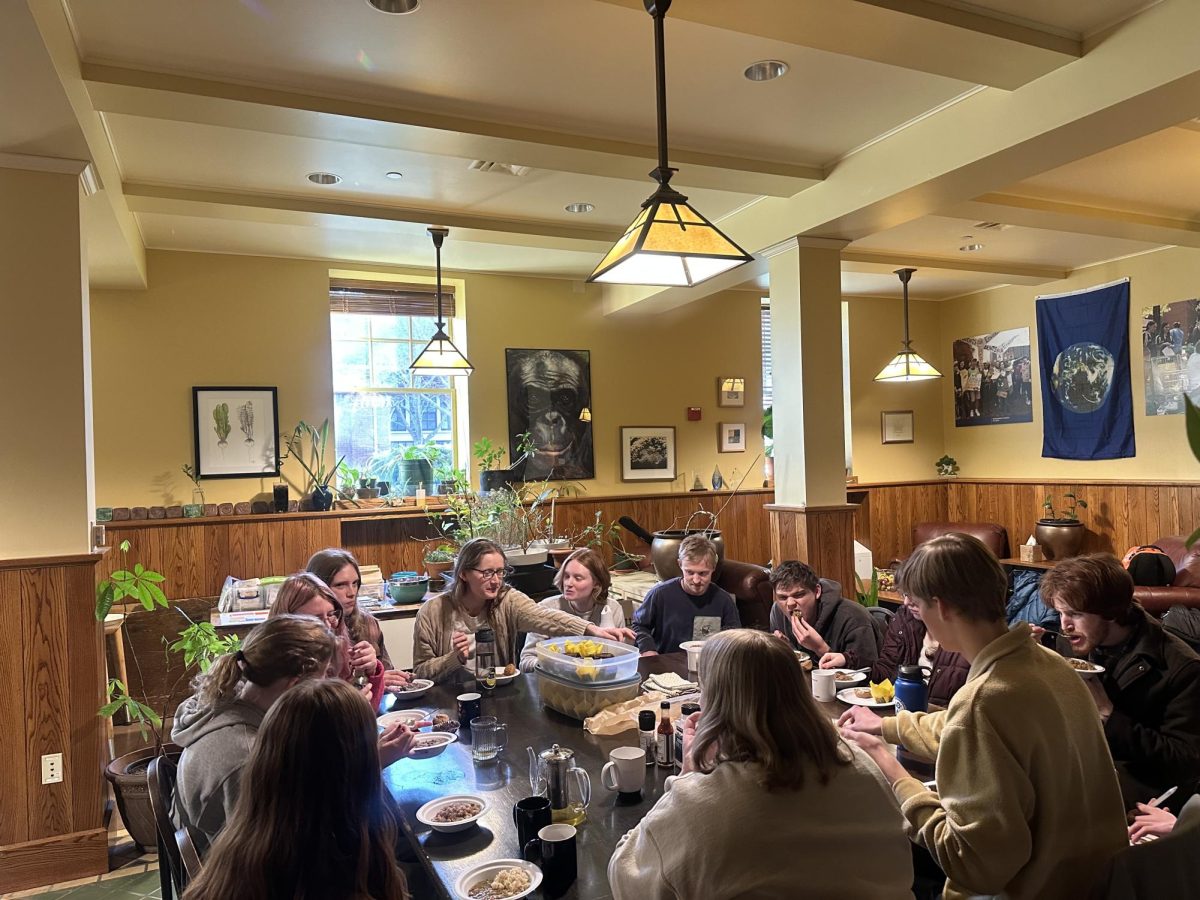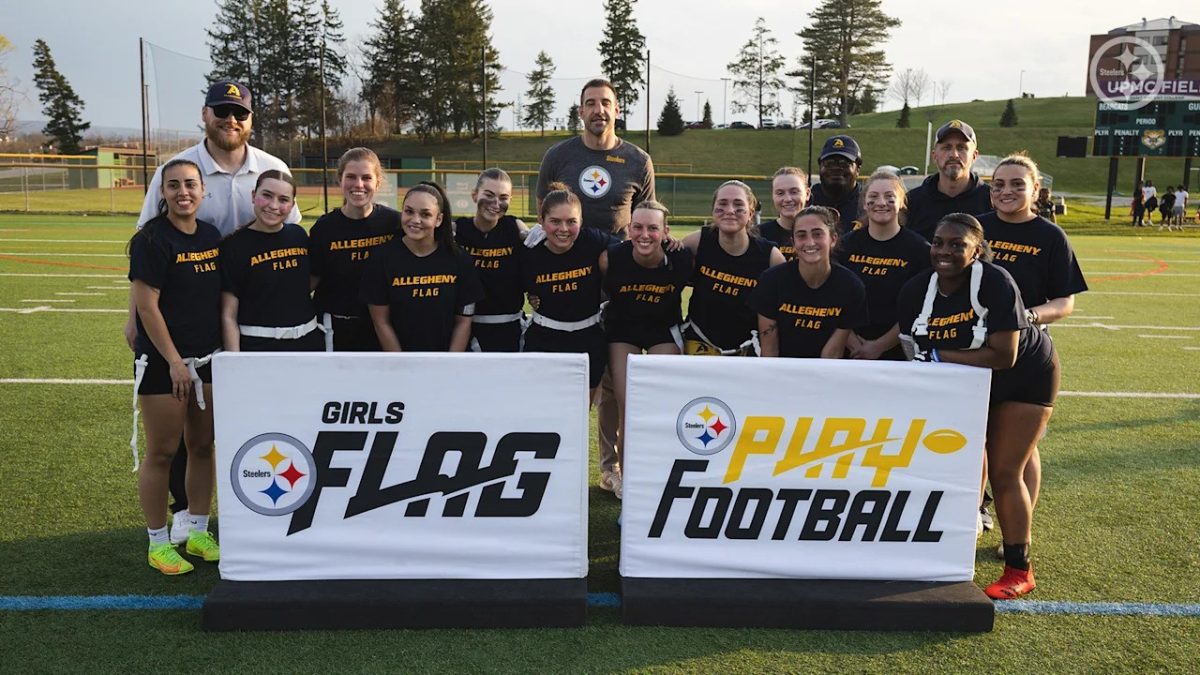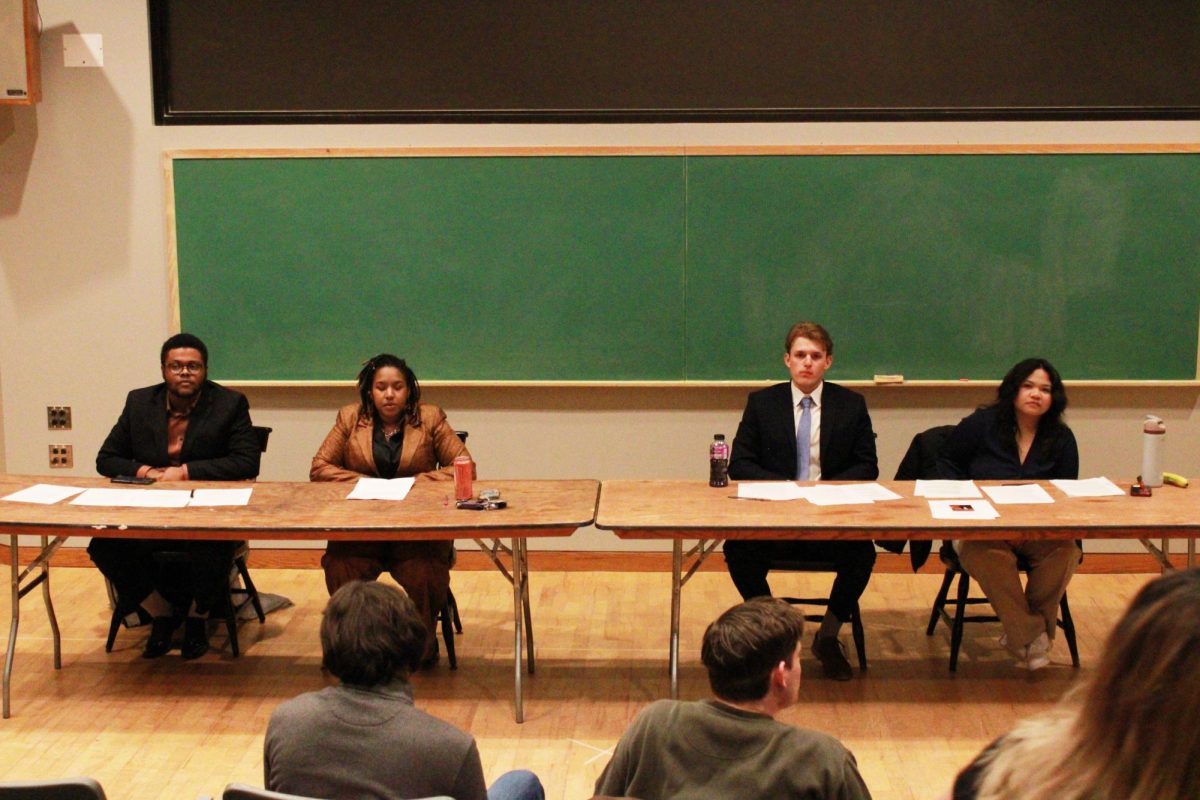By COLLEEN PEGHER
Editor-in-Chief
pegherc@allegheny.edu
The Peace Corps recently released the 2014 rankings for the top volunteer-producing colleges and universities. Amongst small schools, Allegheny College ranked No. 8 nationally, with 14 undergraduate alumni currently serving worldwide.
Last year, Allegheny was ranked No. 23 on the list, showing a significant increase in participation. Peace Corps volunteers serve for two years (not including training) working directly with communities around the world to build capacity in education, health, youth in development, environment, community economic development and agriculture.
Former Allegheny Student Government President and graduate Shane Downing, ’11, recently returned from his term of service in Cameroon in Central Africa, where he worked as an environmental volunteer.
“I went right after graduating,” said Downing. “I went mainly because I wanted to do something with service and do something international, so I think that Peace Corps was an outlet for both of those things.”
Michaeline Shuman, director of the career education office, a Returned Peace Corps Volunteer who served from 1999-2001 in Costa Rica, believes that Allegheny’s commitment to service has greatly contributed to the high involvement of its students in the Peace Corps.
“Since nearly all of our students are involved in some time of service during their four years here, those who decide to apply to be a Peace Corps volunteer generally have the right type of experience on their resumes to make them a strong candidate,” said Shuman.
Shuman also believes that students’ experience abroad, along with faculty involvement, factors into the college’s high participation rate.
“So many of our students study a language, participate in ASBs, study abroad and/or participate in ELs, all of which are marketable to a position with the Peace Corps,” she said. “Finally, faculty, community service partners and folks in our office help students be strong applicants. Our students get excellent recommendations from their faculty and community partners.”
Allegheny alumna Dee Carlgren, ’12, is currently a Peace Corps volunteer serving in South Africa. She is working as a CHOP (Community HIV/AIDS Outreach Program) volunteer, which requires her to work with one of the District Municipalities to develop HIV/AIDS Outreach and education programs. She feels that her involvement in the Allegheny community played a role in her decision to join the Peace Corps.
“By serving as a Bonner scholar, being a member of Tri Delta and programs like Up ‘til Dawn and [participating in] Make a Difference Day, I have developed a sense of community and a passion for disadvantaged populations,” said Carlgren. “Allegheny has taught me that a true leader doesn’t just stand on the sidelines, but has the desire and courage to get in the game and make a difference.”
For liberal arts majors to qualify for the Peace Corps, they are recommended to gain 30 hours or three months of tutoring or volunteer work. Those with degrees in the humanities and social sciences are typically placed in English teaching, health education, community development and agriculture programs. If you hold experience in one of these fields, you are considered to be a stronger candidate, according to the Peace Corps’ website.
Accepted volunteers serve for 27 months, which can be difficult at times, according to Downing.
“It’s a risk,” he said. “It’s a leap of faith when you’re graduating and see 27 months ahead of you. It can be scary, but I think that Allegheny prepares you. It gives you the confidence to go into something like that and succeed. I can’t say that’s not that case at other colleges, but with that Allegheny foundation I wasn’t afraid of what was coming next.”
Despite the obstacles, volunteers like Downing and Shuman view their experience in the Peace Corps as highly valuable.
“The thing I’d take away most is the resiliency as a human being,” Downing said. “Being put in positions where you’re experiencing the highest of highs with other people and you’re experiencing the low points too and being able to move past them and see how strong you are. It challenges you in different ways that I don’t think you can be challenged in in an academic setting.”
Shuman encourages Allegheny students, who are interested, to apply.
“Peace Corps is one, if not the best, opportunity for students who wish to live, learn and serve in an international setting,” she said. “Peace Corps has honed the skills in helping new volunteers develop language fluency and cultural competency in just three months of training. The in-country support is fabulous. I always tell students who meet with me that I’m biased of course, but Peace Corps truly is, in my mind, the way to go if someone wants to participate in international development.”









